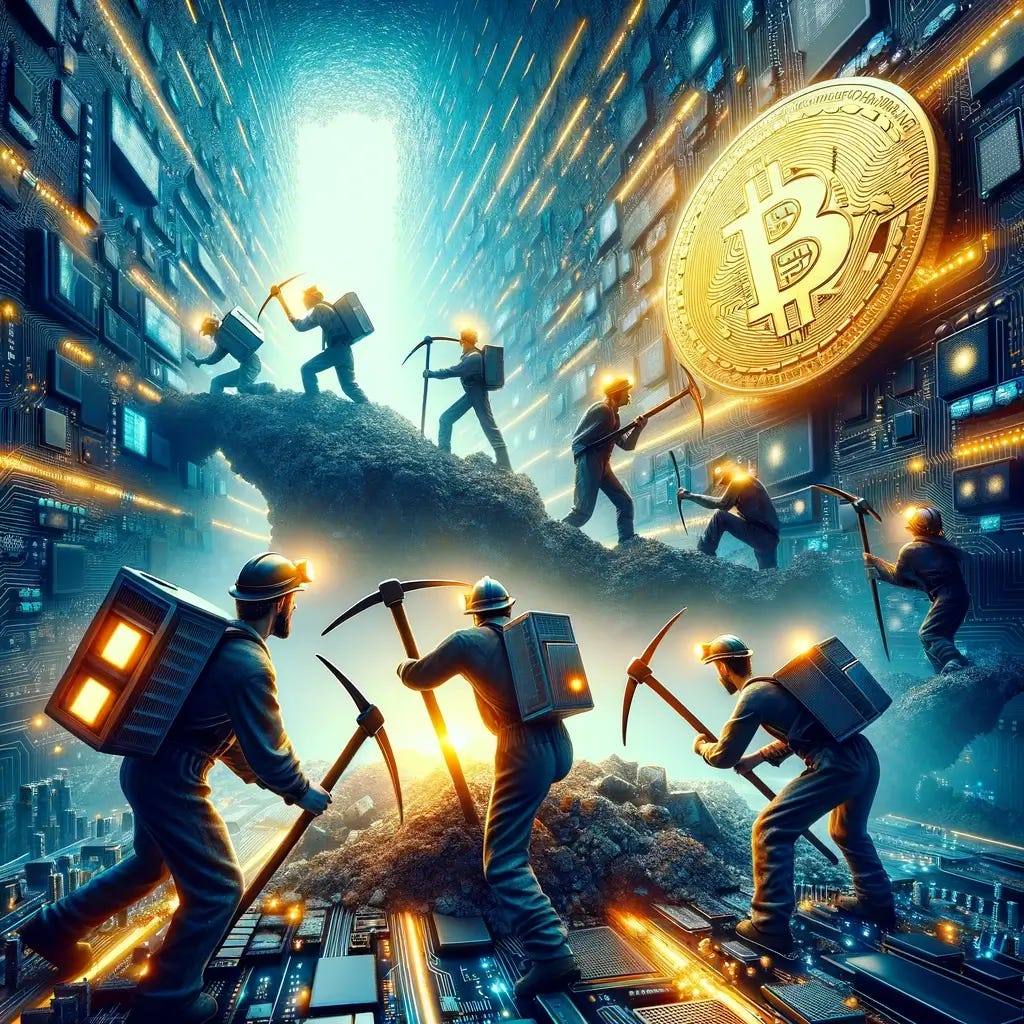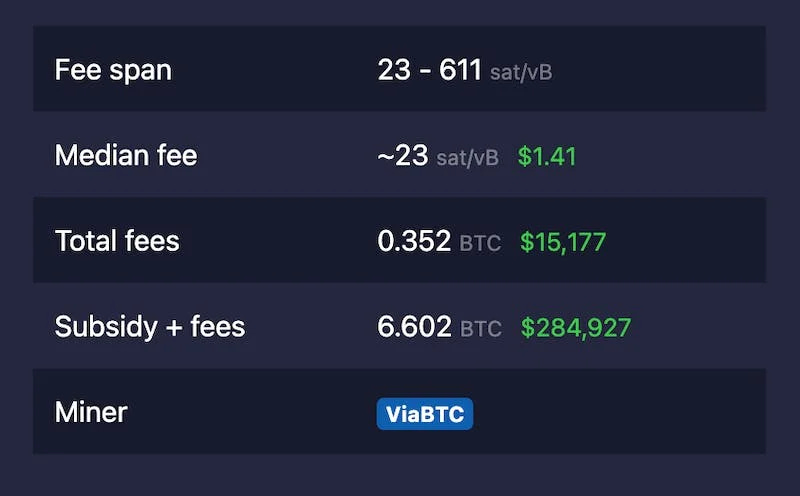How Does Bitcoin Mining Work?
Learn about Bitcoin mining and understand how mining works.
Bitcoin is decentralized and the blockchain data is stored across all the nodes across the world. But who adds data to the blockchain that syncs across all the nodes? The data is added by the miners.
Whenever a transaction on the Bitcoin network happens between two wallets, the transaction waits in the mempool (short for memory pool). Miners have to pick up these transactions and "mine the block". Each block usually contains a few thousand transactions and each block will be around 1-2 mb in size.
To mine the block, the miners have to use a lot of computing power, usually called hash power. You might have heard that Bitcoin mining consumes a lot of electricity. It was not always this way. A decade ago, people could mine Bitcoin using their laptops or computers. It didn't require that much energy.
When more miners try to mine so that they can win the block reward, the difficulty level of mining increases. The hash rate of Bitcoin is the total of all the computing power used in the mining of Bitcoin. You can see from the chart that hash power (blue line) has been steadily increasing through the Bitcoin price (black line) is fluctuating.
That means that the competition in mining is constantly going up as people deploy computers with higher computing power to solve the block. Why? Because it is very rewarding. If a miner solves a block, right now they will get 6.25 Bitcoins which has a market price of $400,000.
Does that mean that you can also start mining Bitcoin? To solve an entire block, you need a lot of computing power and the chances that you will solve a block are very low. That's why there are many mining pools across the world where the computing power is contributed to the pool and when the pool wins a block the mining reward is distributed across all the people who contributed to it.
The top pools in the world are Antpool, Foundry, F2Pool, Poolin, and Binance Pool. Miners can join and exit any pool as they like.
I don't want to go very deep into Bitcoin mining as it needs a separate course on its own. However, you need to understand that the electricity consumed by Bitcoin mining is not because Bitcoin was designed that way. It consumes so much electricity because so many people want to mine Bitcoin and the difficulty has gone up due to the competition.
If Bitcoin consumes too much electricity for one single miner that their earnings from Bitcoin are less than the cost of equipment and electricity, then they will shut down their machines until it become profitable again.
When miners shut down their machines, the difficulty adjustment goes down and mining consumes less electricity. This is completely driven by free market forces which is what Bitcoin stands for.
Miners do not just earn from block rewards that get generated when a new block is mined. They also earn from the transaction fees that are paid on the network through wallet-to-wallet transfers.
Again, the transaction fee depends on the free market. If people want to the transaction to be confirmed immediately, they will pay a high fee and it will be prioritized on the network.
If people pay a low fee, it might take a few hours or even a few days for the transaction to be confirmed. If people set a very low fee to transact, then the transaction might never be confirmed on the network.
You can see all the transactions happening live on this website: mempool.space
If you open the website, you can see the pending blocks to be mined and the recently mined blocks. Each block is mined once in 10 minutes approximately. Sometimes no block is mined for an entire hour. And sometimes one block is mined every 5 minutes. It averages down to 10 minutes per block.
As of writing this article, the most recent block that was mined is Block number: 829047. The halving is going to happen at the 840,000th block.
For block number 829047, you can see that the total fees paid through transactions are 0.352 BTC worth around $15,000. Plus the block reward of 6.25 Bitcoins means that the miner earned 6.602 BTC by mining this block.
As soon as the block is mined, the block is added to the blockchain. It is updated to all the lakhs of nodes across the world. If you run your own node, the most recent block will be added to your node as well. Isn't this beautiful? This is why Bitcoin is decentralized and a public infrastructure with no central authority controlling it.
Miners cannot change anything in the Bitcoin system. For any change to be implemented, all the nodes have to agree. The miners work for the nodes. Bitcoin's system is built in such a way that the nodes are light so that anyone can afford to run a node themselves.
If you are interested in running your own node, watch some YouTube tutorials on this topic and you will be up and running with your own node that has the entire copy of the blockchain within a few days.
In the mined block, you can also see every transaction that happened in the block. Though we do not know who owns which wallet address, the transactions are very transparent. You can track where the Bitcoin came from and where it's going. That's why it is not hard for government agencies to find criminals who might be using Bitcoin to move illegal funds. It's way more transparent than people think it is.
The first transaction that you can see on the mined block is called a coinbase transaction. These are the newly generated coins.
From the 840001st block, only 3.125 Bitcoins will be awarded per block. No one can change this rule because it is a consensus. Just like Chess rules are a consensus, the Bitcoin rules cannot be changed because it is something that all the nodes agree on. Good luck trying to convince 100s of thousands of nodes spread across different countries to change the rules.
That's why I feel Bitcoin is safe. It is safe because there is no central point of failure. It's decentralized and built on consensus. It's mathematics. It's true. It's beautiful the way it works. I hope by now you are starting to get an idea why Bitcoin is the future. There is nothing else that is decentralized like this. That's why I do not believe in any other coins. Most of the other crypto coins are centralized. We will talk about why I do not prefer scam coins like Ethereum and Solana in future posts.





